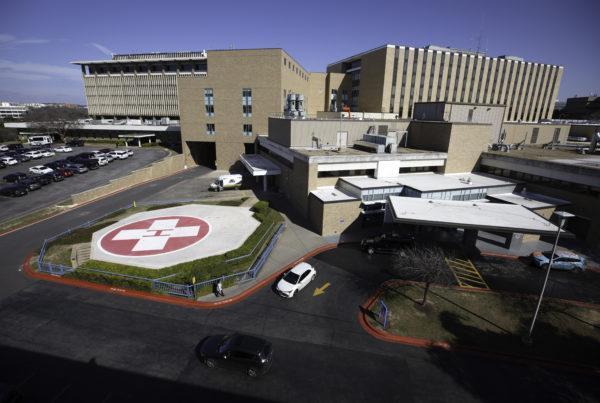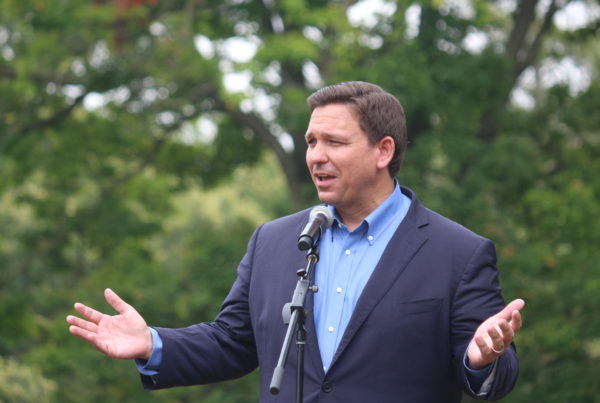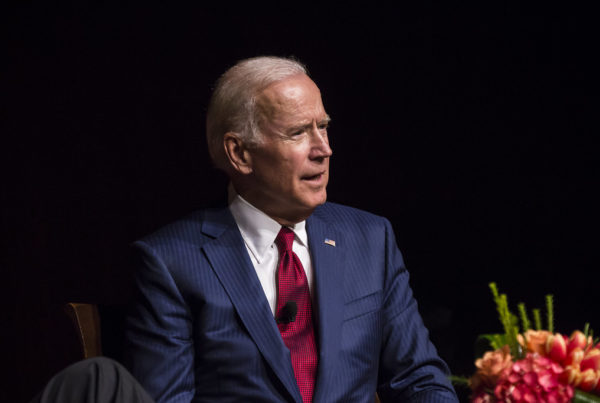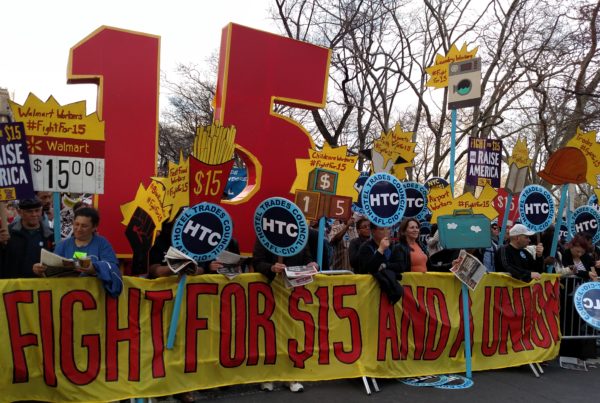Just a few months ago, anxieties were high about the potential for through-the-roof energy prices this winter, especially in Europe.
But as the year begins, things do not appear to be playing out quite as expected. Oil and gas prices are down significantly, with Reuters reporting that U.S. natural gas prices fell 18% in the first week of January. That’s the biggest decline to kick off the year since 2016.
Matt Smith is keeping an eye on prices for Kpler, where he’s lead oil analyst for the Americas. He spoke with the Texas Standard about the state of the energy industry as the new year kicks off. Listen to the story above or read the transcript below.
This transcript has been edited lightly for clarity:
Texas Standard: Here we are in January, right? Oil and gas prices down significantly. Reuters reporting that U.S. natural gas prices fell 18% in the first week of January. What’s up, or should say ‘what’s down,’ with that?
Matt Smith: Well, essentially, it’s been warm weather coming through on the forecasts. So we’re passing through the peak of bleak mid-winter here. And although storage is below last year’s level in the five year average, it should recover in the weeks ahead, given milder weather. Another factor as well is that U.S. natural gas production last year was up at a record, while at the same time, for the whole of the second half of last year, the Freeport LNG terminal was knocked out. And so that was supposed to be supply leaving the country that stayed here. So that has played into things, too. But really, it’s just been this warmer-than-expected winter.
Looking at European natural gas prices dropping nearly 50% since mid-December, are we talking about the same factors here? A warmer-than-expected winter?
We are, but U.S. natural gas is still very expensive. It’s around $20 in MMBtu, whereas here in the U.S., we’re just under $4. But it’s nowhere near where it was. It was above $40 last month. And get this, it was nearly $100 back in September ahead of winter. You know, there was such a concern of supplies running out. But Europe has been so fortunate in the same ways that the U.S. forecasts are looking now in that it’s had a very mild winter and that’s pulled prices actually back to below where they were prior to the invasion of Ukraine. All that said, though, Europe still is not out of the woods yet. They need to refill their storage once winter ends, but they definitely appear to have dodged a bullet here.
Well, where are we in terms of sanctions with Russia? And haven’t those tightened recently?
Yeah, so we’re very much in the midst of those. So we had crude sanctions put in place at the beginning of December and a price cap as well. We’ve also got an LNG – a liquefied natural gas – price cap, as well, in place. But that’s a bit of a moot point at the moment, simply because that price cap is so high and prices are so low – it’s somewhat irrelevant. And then the third piece is that early next month, we then get the EU sanctions kicking in for clean products – so for diesel, for gasoline. And so we’re very much in this midst of trying to punish Russia here.
Riddle me this: why are oil prices also weaker? I mean, I would expect to see those oil prices advancing if you’re clamping down on these sanctions.
So it’s a couple of things. Recessionary concerns are really kind of making their way into things now. Uncertainty surrounding China, as well. They may be reopening their economy, but, you know, coronavirus is just ripping through the country. But then thirdly, Russian crude exports have dropped because of sanctions kicking in early last month, but they haven’t tanked by any means. They’ve, instead, been redirected away from Europe and largely to Asia instead.
What does all this mean for everyday Texans? How would you answer that question, Matt?
It’s a little bit of a Goldilocks situation as long as the economy holds up because gas prices have now dropped well below sort of $3 a gallon there, while oil prices are a high enough to kind of stimulate the oil industry, as well. So to keep the Texan economy going. So we’re in a fairly good place as long as the economy doesn’t drag us lower here.















